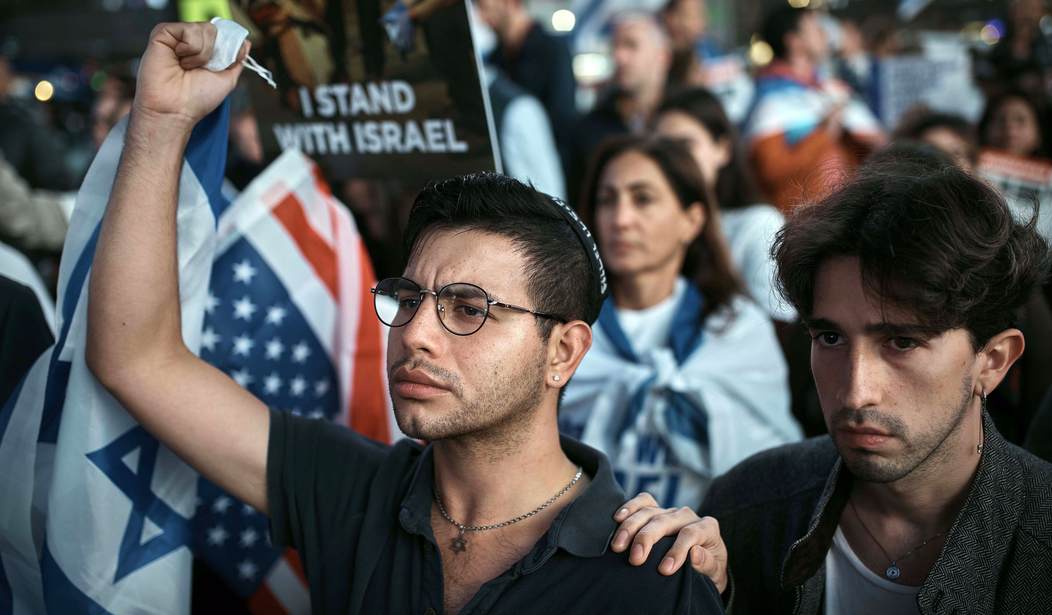Editor's note: This piece was authored by Garion Frankel.
My paternal grandparents are Jewish New Yorkers — a generation born in the Russian pogroms’ shadow that, from their Flatbush Avenue apartments, came to terms with their Jewishness at a time where knowledge of the Holocaust’s true horror was just beginning to reach America’s shores.
Throughout my childhood, my grandparents taught me that the City, to the Jews, was a safe haven. Their parents and grandparents may have toiled in brutal factory conditions and suffered persistent persecution, but even this was better than the Old World’s violence and cruelty. Indeed, an old exhibit at the Museum of Jewish Heritage in Battery Park referred to New York as a “city of refuge” — a place where Jews could and can live free from thousands of years of persecution and hate.
Evidently, the persecution and hate never went away. They were merely hidden, waiting for an opportunity for old prejudices to be unmasked. In the aftermath of Hamas’ barbaric terrorist attack against Israel on October 7th, antisemitic crime in New York City has risen by a staggering 214 percent. Meanwhile, NYU has fired a prominent Jewish doctor for pro-Israel tweets (he’s filing a lawsuit alleging religious discrimination), and random attacks around the City and on social media have created a culture of fear and tension that harken back to days thought long past.
This problem will not go away, and it’s not really about Israel. It’s about a simmering, millennia-long revulsion to the Jewish people. And unless municipal government and citizenry alike take decisive action, this hate and violence against Jewish New Yorkers will continue to fester. Many more people could be harmed.
Recommended
It would be inaccurate to say that the city and its institutions are doing nothing to confront the problem. NYU, which, along with Columbia, has arguably been the epicenter of campus antisemitism in New York, announced the creation of an interdisciplinary Center on the Study of Antisemitism. Columbia created a task force aimed at addressing antisemitism on campus. On the municipal front, Mayor Eric Adams has been particularly forceful in his condemnation of antisemitic activity, referring to social media as a “Trojan horse” corrupting an otherwise diverse and harmonious city.
But a university task force will not help save Jewish students barricaded in a library from a wave of protesters holding them responsible for everything Israel does or does not do. A research institute will not reopen train stations closed because people refuse to stop spitting on innocent Jews. Bold words from elected officials mean little when Jews are told they cannot safely enter an entire neighborhood in their own city.
How are New York’s Jews supposed to feel when vandals terrorize their businesses with few immediate consequences? How are New York’s Jews supposed to respond when activists demand that violent resistance be globalized, with Jewish or Jewish-aligned targets pointed out on a map?
Additional security funds and multi-level civil rights investigations should only be the start of things. At a time when accurate hate crime reporting is essentially for stopping antisemitism in its tracks, we must work to prevent undercounting in hate crime statistics, which has been a persistent problem in New York. Beyond the criminal justice system, New York City Public Schools should not only reckon with antisemitism within the district, but also ensure that students learn about the Holocaust and Jewish history.
But this isn’t just a governmental problem. New Yorkers need to step up too — and that could mean overcoming any misgivings about getting involved. If you see someone vandalizing a Jewish deli, film and report that person. If you see someone drawing antisemitic graffiti, do not hesitate to contact law enforcement. If you see a Jewish person experiencing antisemitic street violence, do not simply stand there and watch, come to his or her defense.
These are not unreasonable asks. New Yorkers have already shown they can do this. After all, New Yorkers of all stripes — Jews and non-Jews alike — came together to confront those tearing down anti-Hamas posters throughout the city. Protecting fellow New Yorkers from those who seek to harm them for their religious identity is just the next logical step.
As long as there are Jews in the world, there will, unfortunately, be antisemitism. But there’s nothing stopping New York from reclaiming its reputation as the world’s safest place for Jewish people. It will take decisive action from government and citizens alike, but together, New Yorkers can send antisemitism back to the gutter where it belongs.
Garion Frankel is a Ph.D. student in PK-12 educational leadership at Texas A&M University. He is a Young Voices contributor, and was previously an education journalist.

























Join the conversation as a VIP Member